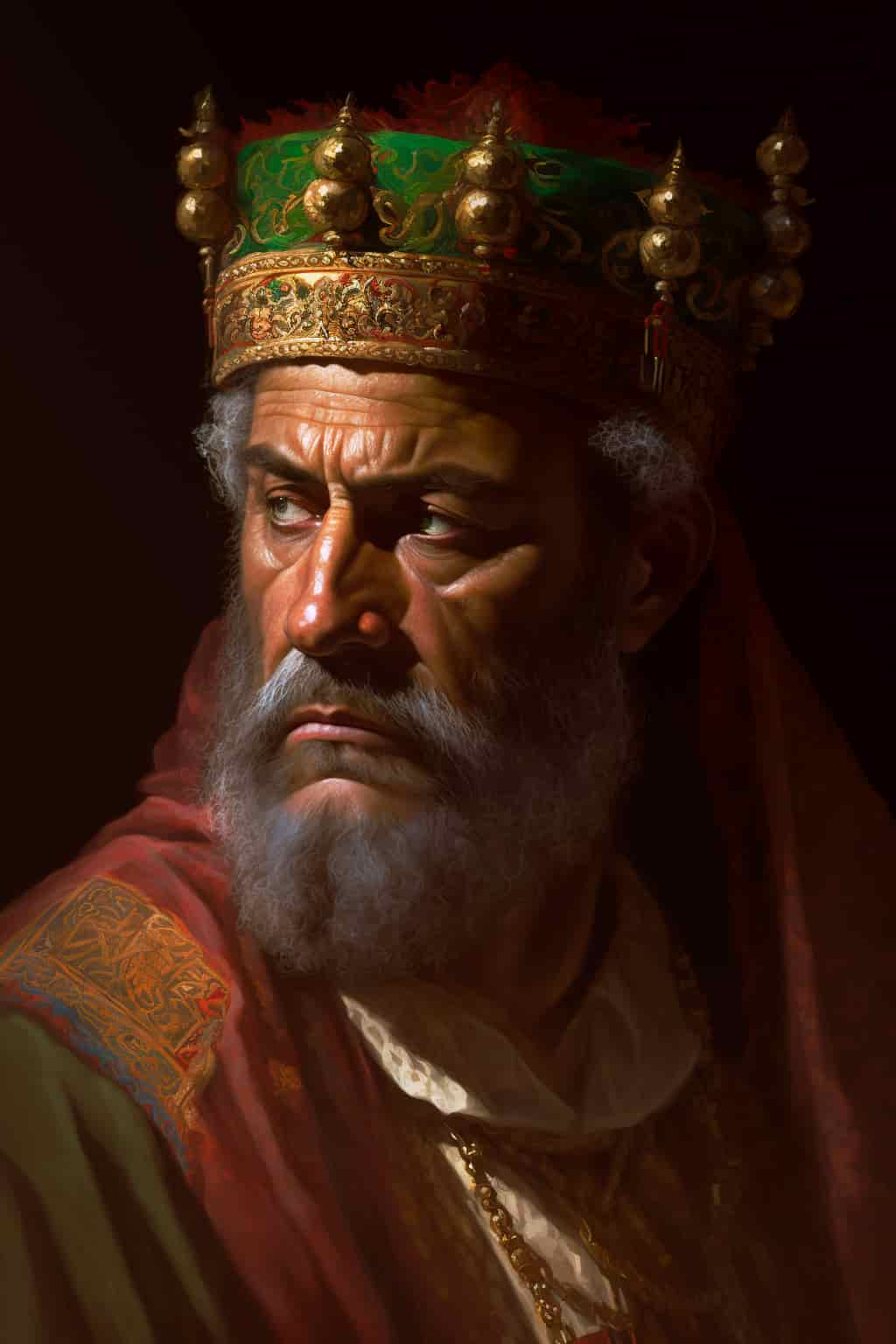Discover Jesus \ Person \Herod the Great
Tag
Herod the Great
Ruler of Judea during Jesus' early years, Herod is infamous for the "massacre of innocents" when he ordered the death of boy babies in Bethlehem to thwart Jesus' rise to power.

Table of Contents
Summary
Herod was the family name of several rulers of Palestinian regions before, during, and after Jesus’ life. Herod the Great was the father and head of the family. He was born around 70 BCE and died in 4 BCE when Jesus was just a toddler. To the people of Judea, where he ruled, he was seen as an outsider. He became Judea’s ruler by cleverly ingratiating himself with the Romans who ruled the entire Mediterranean region at that time. He grew up in a Jewish household and professed loyalty to Hebrew ceremonial observances, but he proceeded to build temples for many strange gods.
Herod was a great builder, but he is best known for his infamous "massacre of innocents" in which he ordered the death of all boy babies in Bethlehem in an attempt to prevent Jesus from displacing him as ruler of the Hebrews. Jesus’s parents escaped with the child the night before the massacre, going to Egypt and returning only after Herod died.
Herod’s Rule
The friendly relations of Herod with the Roman rulers made the world safe for Jewish travel and this opened the way for increased Jewish penetration, even of distant portions of the Roman Empire and of foreign treaty nations. Although it was not Herod’s intention, Jesus, and later his traveling disciples, carried near and far the new gospel of the kingdom of heaven. Herod’s reign also contributed much toward the blending of Hebrew and Greek philosophies which became a significant factor in the spread of Jesus’ teachings.
Herod built the harbor of Caesarea which put Palestine at the crossroads of the civilized world. Before he died in 4 BCE, he appointed his son, Herod Antipas, as governor of Galilee and Perea. His son ruled there during Jesus’ youth, ministry, and death. The reign of Herod Antipas ended in 39 CE.
In 7 BCE, three years before his death, Herod the Great ordered that the people under his jurisdiction be numbered by way of a census. It was this order that caused Joseph and Mary to travel to Bethlehem, Joseph’s ancestral home, and there to register for the census. Mary gave birth to Jesus the day after they arrived in Bethlehem. Eight days later, the child was taken to the temple for naming and circumcision. Because of what happened at the temple, rumors began to spread that this baby was the expected Jewish Messiah. This alarmed Herod to the point of committing infanticide.
Massacre of Innocents
After Herod heard that a child had been born in Bethlehem, one who fulfilled the prophecy of the Messiah, he decided to act. Being insecure and thinking the expected Messiah might depose him, he plotted to have baby Jesus killed. He sent out search parties, even questioned the three wise men, in an effort to find the child. Jesus’ parents, Joseph and Mary, were informed about Herod’s intention and left for Egypt the night before Herod ordered that all boys in Bethlehem under age two be killed. Sixteen babies were slain the next day by Herod’s soldiers. Mary and Joseph stayed in Egypt until Herod died and his successor did not pursue his father’s obsession to kill the so-called Messiah.
Herod’s Sons
Herod had four sons who became rulers after his death, Antipas, Agrippa, Archelaus, and Philip. Antipas is infamous for beheading John the Baptist, and later, for mocking and taunting Jesus before he was crucified. Agrippa put the apostle James Zebedee to death not long after Jesus died. Archelaus was deposed for unwise rulings and hated for his cruelty. Philip became a half-hearted believer in Jesus and allowed him to live and work in his domain.
Suggested Reading from this Essay

Related People
Herod Antipas
Son of Herod the Great, ruler of Galilee and Perea.
Related Locations
Caesarea
Jesus shared transformative teachings at Caesarea.
Palestine
A region that influenced the spread of Christianity.
Praetorium
Praetorium in Jerusalem hosted Pilate's trial of Jesus.
Contributors
Rick Warren, Mike Robinson, Gary Tonge
